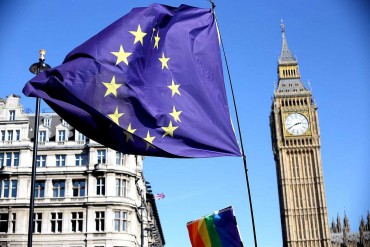2 min read

Investors are focused on Brexit. The House of Commons of the UK should again start voting for the Brexit agreement, presented by Prime Minister, Theresa May. During the first vote, the Parliament rejected the Prime Minister’s deal. If the revote again fails, the events may develop in two scenarios: the UK will leave the EU without an agreement, or the Brexit date will be rescheduled.
But let see the risk of Brexit and the potential impact on the UK economy.
We also consider the likely reaction by markets for sterling, equities, and bonds.
We just want to inform investors.
The EU is the UK’s biggest trading partner.
But, the UK is also a very important export address for the EU. Brexit may bring the UK the freedom to arrange trade agreements with third parties. But it may have to lose access to parts of the single market, and would almost surely be outside the customs union.
Foreign direct investment is really important for financing the UK.
The UK has a strong connection to Europe and vice versa. If Brexit causes the UK to lose access to the single market, it could cause capital inflows to reverse. The existing stock of assets and liabilities is very large. Say that, this has a huge impact on markets in a confusing plot.
EU membership is frequently indicted the UK’s perceived migration problem
Truth is that most immigrants come from non-EU countries. From an economic viewpoint, EU migrants arrive ready to work, pay taxes, and ease the difficulties of an aging population. Limiting migration in a Brexit scenario would almost certainly lower the UK’s trend growth, and increase the burden on the exchequer.
The UK’s contribution to the EU’s budget is not a significant
When the UK decides to leave the EU, finally, with just 0.2% ( December 2018) of gross national income, that saving wouldn’t solve a dent in the UK’s fiscal black hole. Moreover, if the UK chooses to follow the path of Norway or Switzerland, some costs may also be required.
UK labor market will be less flexible
Restrictions on EU migration may cause the UK labor market to become less flexible to demand. With raising the likelihood of more pronounced wage, inflation and interest rate cycles. A more cyclical economy would not only make recessions more frequent, but international investors could demand a discount on UK assets given the higher volatility of expected returns.
A Brexit scenario is likely to cause sterling to fall further.
We are all witnesses to that.
Having already seen its first-class depreciation since the financial crisis in recent months, we can say that a further fall is likely under Brexit. But, the sterling could rebound should the UK vote to remain, as many investors have already started to hedge their sterling exposure.
The outlook for UK equities is mixed under Brexit.
The UK’s large-cap index has a large proportion of its revenues coming from outside both the UK and EU. If sterling depreciates, these companies may see the sterling value of profits rise. So, they would therefore benefit.
The mid and small-cap indices have more exposure to the UK and EU and could underperform as a result.
The outlook for bonds is mixed under Brexit.
Credits could have wider spreads. The investors demand a higher premium against the risk of lower growth and higher default risk. Meanwhile, gilts (Gilt-edged securities are bonds issued by the UK Government)are likely to see higher domestic demand from safe-haven flows.
The latest news: Ryanair UK investors to lose rights in no-deal Brexit
According to the Guardian, British citizens who own shares in Ryanair will be barred from buying more stock, voting on company resolutions or attending annual shareholder meetings if a no-deal Brexit goes ahead, the Dublin-based carrier said on Monday.
EU regulations require that airlines flying under a European license must be majority-owned and controlled by shareholders from the trading block.
Ryanair said that to comply with these regulations it would have to restrict the rights of British shareholders, who control about 20% of the company’s stock, to bring them into line with other non-EU investors.
In a statement to the stock market, Ryanair said: “These resolutions will remain in place until the board determines that the ownership and control of the company is no longer such that there is any risk to the airline licenses held by the company’s subsidiaries.”
Ryanair has previously published a guide to the ramifications of a hard Brexit for its UK shareholders, explaining its rationale for the decision and claiming it has no alternative.
Don’t waste your time.



Leave a Reply